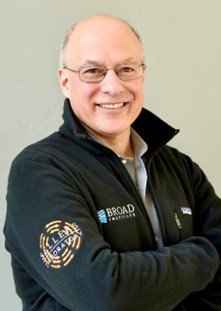Keynote Speakers
Leigh R. Hochberg, MD, PhD is a Neurointensivist and Vascular Neurologist at Massachusetts General Hospital (MGH) and Senior Lecturer on Neurology at Harvard Medical School; the L. Herbert Ballou University Professor of Engineering and Professor of Brain Science in the School of Engineering and Carney Institute for Brain Science at Brown University; and Associate Director, Department of Veterans Affairs (VA) RR&D Center for Neurorestoration and Neurotechnology (CfNN) in Providence, Rhode Island. He also directs the MGH Center for Neurotechnology and Neurorecovery (CNTR), and is the IDE Sponsor-Investigator and Principal Investigator of the BrainGate clinical trials, conducted by a consortium of scientists and clinicians at Brown, Emory University, MGH, Providence VA, Stanford, and University of California Davis. Dr. Hochberg’s research focuses on the development and testing of novel neurotechnologies to help people with paralysis and other neurologic disorders. His research with the collaborative BrainGate team is supported by the VA Rehabilitation R&D Service, the National Institutes of Health including the BRAIN Initiative/NINDS and NIDCD, and philanthropies including the ALS Association, the American Heart Association, the Movement Disorder Foundation and the Cerebral Palsy Alliance Research Foundation, and has been honored with the Joseph Martin Prize in Basic Research, the Herbert Pardes Prize for Excellence in Clinical Research, the first Israel Brain Technologies international B.R.A.I.N. Prize, the Derek Denny-Brown Young Neurological Scholar Award, the CERF Prize in Medical Engineering, and the Paul B. Magnuson Award from the US Department of Veterans Affairs.
Leigh R. Hochberg, M.D., Ph.D.
Charles L. Limoli, Ph.D.
Charles L. Limoli, Ph.D. is a Professor and Vice Chair of Radiation Oncology at the University of California Irvine. He holds a B.S. in chemistry from MIT and a Ph.D. in biomedical sciences from University of California San Diego. He served as the 65th President of the Radiation Research Society (RRS), chaired numerous peer-review committees and has been the recipient of multiple extramural grants from agencies such as the NINDS, NCI, NASA, ACS and DTRA. He is an internationally recognized expert in radiation biology with over 180 publications spanning regenerative medicine, cancer biology and new techniques for radiation therapy. His work spans decades of studies with NASA analyzing space radiation effects on the brain, and more recently was awarded the first NCI grants (P01, R01) on FLASH radiotherapy focused on improving outcomes for adult and pediatric brain malignancies.
William R. Sellers, M.D.
William R. Sellers, M.D. is a Core Institute Member and Director of the Cancer Program at the Broad Institute and a Professor of Medicine at the Dana-Farber Cancer Institute and Harvard Medical School. At the Broad Institute he runs a research group focused on translating genomic discoveries into new therapeutics. From 2005-2016, Dr. Sellers directed cancer drug discovery and early cancer clinical development at the Novartis Institutes for Biomedical Research. Since joining Novartis in 2005 the oncology research group brought more than 30 small molecule, biologic and cell-based cancer therapeutics into first-in-man trials with ten therapeutics reaching market approval. During his tenure he conceptualized and directed the collaboration with the Broad Institute on the Cancer Cell Line Encyclopedia, the development of the Novartis Primary Derived Xenograft Encyclopedia and large-scale efforts to functionally characterize the cancer genome (Project DRIVE). Along with Dr. Carl June, he co-chaired the CART collaboration with the University of Pennsylvania that brought CTL019 to FDA approval.
Together with Matthew Meyerson, he previously initiated and developed large-scale efforts to resequence genes in diverse cancer type, and pioneered the use of high-density SNP arrays for defining LOH and copy number alterations across cancer including the development of the widely used GISTIC algorithm. These projects led to discovery of EGFR mutations in lung adenocarcinoma and the discovery of the oncogenic role of the MITF gene in melanoma. In addition, his work advanced the understanding of the molecular mechanisms of growth regulation of the PTEN tumor suppressor gene. Dr. Sellers received his B.S. from Georgetown University and M.D. from the University of Massachusetts Medical School. He completed residency training in Internal Medicine at the University of California San Francisco and trained in Medical Oncology at the Dana-Farber Cancer Institute.



